timeline16iphonefbi
Latest

NY judge rules feds can't force Apple to unlock an iPhone
A US magistrate judge in New York has ruled that the government can't force Apple to help law enforcement unlock an iPhone using the All Writs Act. This case in question is about drug trafficking and is not related to the San Bernardino shooter case.
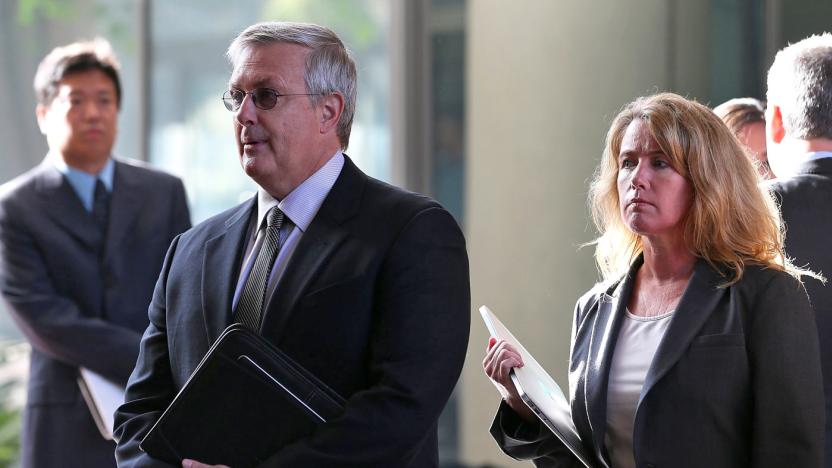
Read Apple's opening statement to Congress over its FBI fight
Apple is gearing up for its first meeting with Congress tomorrow regarding the FBI's request to unlock an encrypted iPhone linked to the San Bernardino terrorist attacks. The company's General Counsel, Bruce Sewell, will testify its case before the house Judiciary Committee, and if you've been following this saga, you've probably got a decent idea of his position. Sewell's opening statement was forwarded along to Apple employees earlier today, and as you can expect, it ties together all of the reasons Apple is resisting the FBI's request. The big takeaway: "Weakening encryption will only hurt consumers and other well-meaning users who rely on companies like Apple to protect their personal information."
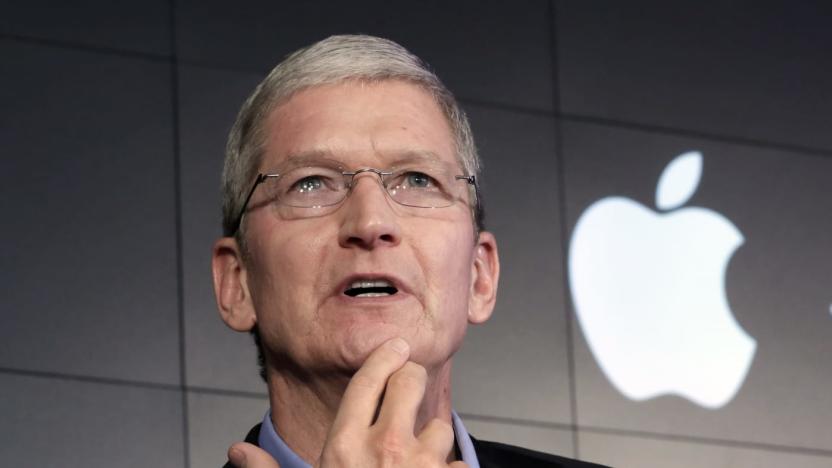
Facebook, Google and Amazon will back Apple in court (updated)
As Apple continues to fight back on the FBI's request, calling it "unconstitutional" in court, support from the tech world is starting to pour in. Soon after Microsoft announced it's decision to back Apple's legal battle with an amicus brief, the Wall Street Journal reports that Facebook, Google and possibly Twitter are among companies working with Microsoft on a joint motion. An Amazon spokesman told Reuters the company is working on its "amicus options," as it becomes clear Apple will have support from many of its competitors in this particular battle.

Apple tells court FBI's request is 'unconstitutional'
The legal and PR battle between Apple and the FBI carries on with the company filing a motion to stop it from being forced to help unlock an encrypted iPhone. In the motion it states that complying with the FBI and DOJ will "undermine the basic security and privacy interests of hundreds of millions of individuals around the globe," and that "the Constitution forbids it."
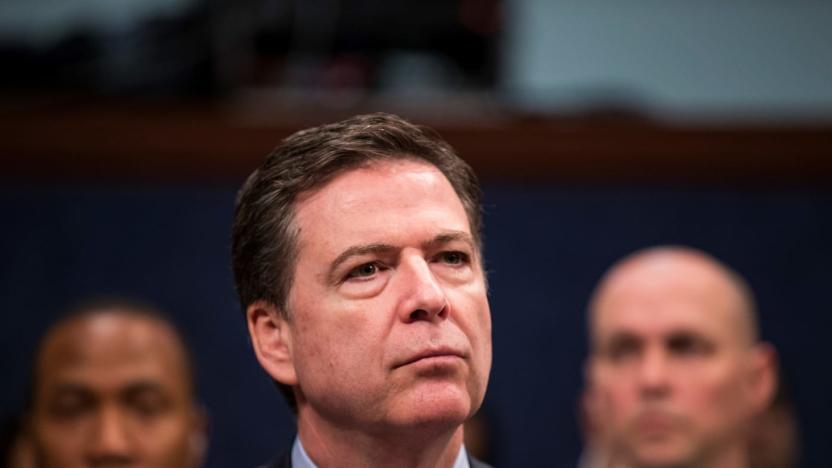
Apple and FBI to testify at Congressional encryption hearing
As the battle between Apple and the FBI over unlocking a terrorist's iPhone rages on, the US House Judiciary committee will discuss encryption next week. The committee scheduled a hearing for next Tuesday (March 1st) where FBI director James Comey will testify alongside Apple SVP and general counsel Bruce Sewell. This isn't the first time the Judiciary committee has met on the subject of encryption, including briefings from both the government and representatives from tech companies.
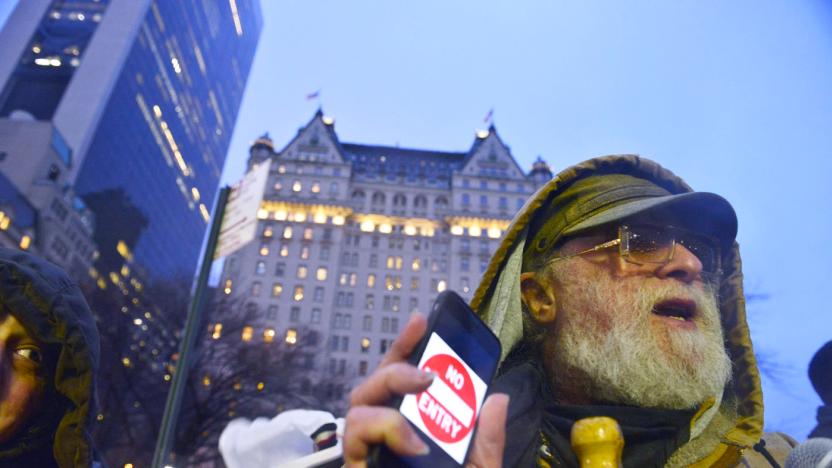
Arizona county won't give its employees any more iPhones
Apple's refusal to help the FBI unlock a terror suspect's iPhone has apparently touched a nerve in Arizona. Maricopa County, the place that brought us birther enthusiast Sheriff Joe Arapaio, announced on Wednesday that it will no longer issue iPhones to its employees. Of the county's current 564 work-issued phones, 366 are iPhones.
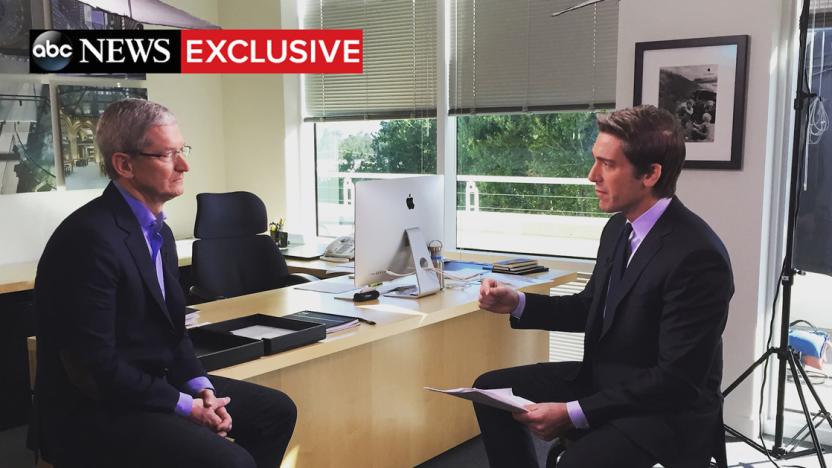
Tim Cook: Unlocking terrorist's iPhone would be 'bad for America' (updated)
Apple has been in an ongoing legal fight with the government regarding the iPhone of terrorist, Syed Rizwan Farook. While the United States has filed motions compelling the company to help it circumvent the passcode of the device, the company and CEO Tim Cook have publicly refused via an open letter stating that doing so would jeopardize the safety and privacy of its customers.

There's more than just one iPhone the US wants to access
Remember when the head of the FBI swore blind that authorities only wanted backdoor access to the iPhone in this one, special case? Turns out that his friends over at the Justice Department just blew that claim miles out of the water. The Wall Street Journal has revealed that the DOJ is currently pushing court cases to get access to the data on no less than 12 different iPhones. The paper's sources say that officials are using the All Writs Act, the same 18th-century law that the FBI feels justifies its request for a backdoor.

Bill Gates sides with FBI over iPhone access issue (updated)
Bill Gates says that Apple should help the FBI break open the San Bernardino shooter's iPhone. Talking to the Financial Times, he said this was a very specific case: "They are not asking for some general thing." Gates has taken a different view compared to major tech companies: Facebook, Google and Twitter have all sided with Apple's stance after a judged ruled that the company needs to help the FBI in unlocking the shooter's phone to assist in their terrorism investigations.
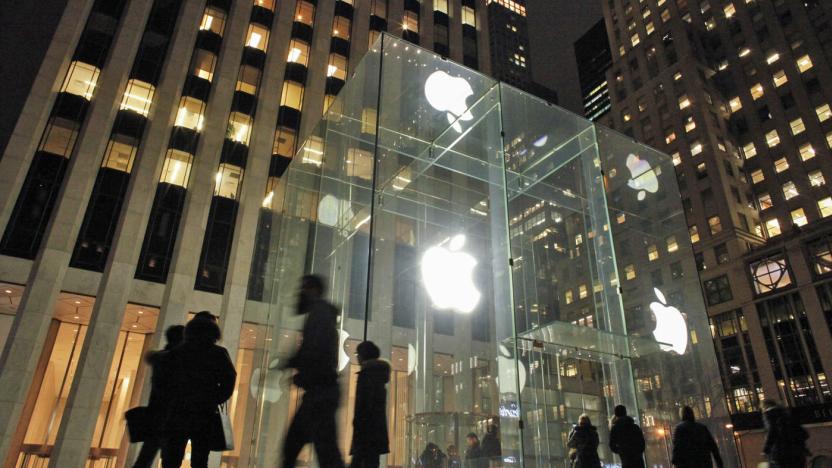
FBI chief 'not trying to set precedent' with shooter's iPhone
FBI Director James Comey has penned an editorial about its dispute with Apple over unlocking the iPhone of San Bernardino shooter Syed Rizwan Farook. In it, he tried to quell criticism by Apple's Tim Cook that a court's decision forcing Apple to help the FBI access the device could have "chilling" implications. "The San Bernardino litigation isn't about trying to set a precedent or send any kind of message," says Comey. "We don't want to break anyone's encryption or set a master key loose on the land. It is about the victims and justice. We owe them a thorough and professional investigation."

Apple: Government may have ruined its chance to get iPhone data
The fight between Apple and the government over San Bernardino shooter Syed Rizwan Farook's iPhone 5c heated up today with the Department of Justice filing another motion to force the company to comply to the FBI's request for help circumventing the phone's passcode. The Cupertino-based technology company struck back later in the day saying that after the government took possession of the phone, the Apple ID passcode was changed and that halted any potential iCloud auto backups.
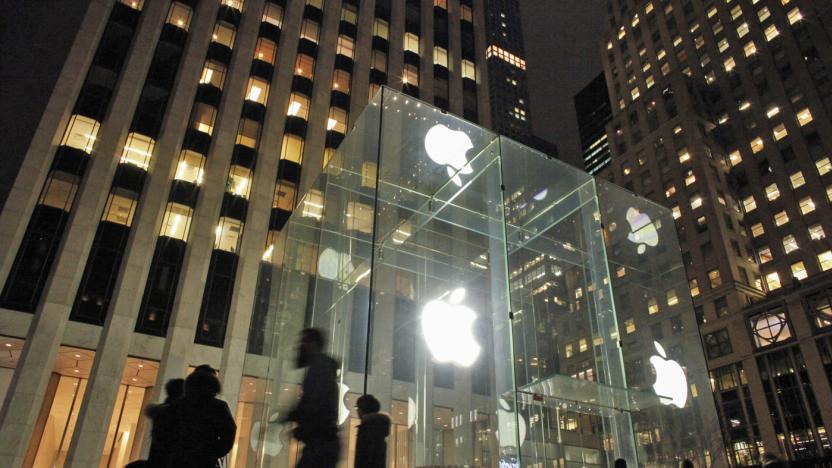
The DoJ is trying to force Apple to comply with the FBI
The Department of Justice has filed a motion to force Apple to comply with FBI's orders to gain access to a phone used by Syed Rizwan Farook, the man behind the San Bernardino attack that left 14 people dead. This comes after Apple was given a period of three days to respond to said order, though the company has already made clear that it's not going to provide FBI with any backdoor access. CEO Tim Cook has said that the order "has implications far beyond the legal case at hand" and has a "chilling" effect that could lead to a serious breach in consumer privacy and civil liberties. Other tech companies such as Facebook, Google and Twitter have come out in support of Cook and Apple, as has the EFF and the ACLU. The government for its part says that the FBI request is only to gain access to that one particular phone, but even in this case, it could set a precedent that all devices have some kind of backdoor. Alex Abdo, staff attorney with the ACLU Speech, Privacy and Technology Project states: "The government's request also risks setting a dangerous precedent. If the FBI can force Apple to hack into its customers' devices, then so too can every repressive regime in the rest of the world."

Twitter, Facebook support Apple in its fight with the FBI
As Apple CEO Tim Cook insists that his company should not be forced to help the FBI weaken security on an iPhone (Not sure why that matters? Get an explanation of the key issues here.), a few more companies have stepped forward in support. Yesterday Google CEO Sundar Pichai issued a carefully-worded statement, followed today by a statement from Facebook to USA Today, and a one-liner from Twitter CEO Jack Dorsey. Facebook said that requirements to weaken security would create a "chilling precedent," while Dorsey simply said that he stands with Cook and Apple.

What you need to know about Apple's fight with the FBI
The iPhone 5c belonging to Syed Rizwan Farook, the man behind the San Bernardino terror attack that left 14 dead, is in the hands of the FBI. It could -- potentially -- contain information about the shooting, including the names and contact information of other terrorists. The handset might even contain evidence of other planned attacks. But the FBI isn't sure, because Farook's iPhone, like many devices, has a passcode. That numerical PIN is now at the center of one the most important privacy debates in recent memory.

FBI could use dead suspects' fingerprints to open iPhones
Having been denied by Apple, despite having a court order, the Federal Bureau of Investigations is quickly running out of options in its efforts to unlock one of the San Bernardino shooter's cell phones. They can't brute force the phone open for fear of the device wiping its data if they guess the wrong passcode too many times and many commercially available hacking tools require the phone already be unlocked. While the FBI is hamstrung in this specific investigation, the solution for similar cases in the future might instead lie with a mobile device's fingerprint reader.

Google CEO: FBI's request of Apple could set a 'troubling precedent'
Tim Cook did not mince words in a lengthy open response to the FBI's order that Apple create a backdoor to allow the agency access to a terrorism suspect's iPhone. Plenty of privacy groups and Apple customers have praised Cook's words thus far, and now one of Apple's biggest competitors is showing support for the company's stance. Google CEO Sundar Pichai just posted a series of tweets regarding Cook's letter and it seems he firmly comes down on the same side as Apple's leader.
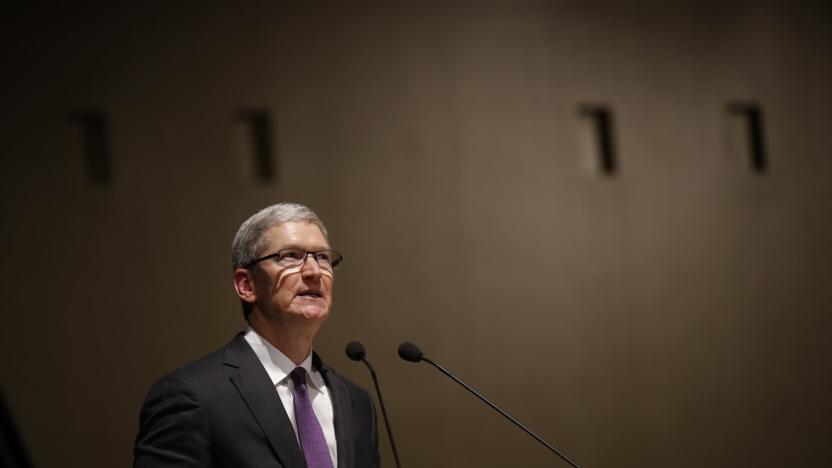
Tim Cook: FBI backdoor order is 'chilling' and 'dangerous'
After it emerged that the FBI was demanding that Apple create a backdoor in its iOS software to help agents access information on the San Bernardino shooter's iPhone, CEO Tim Cook has taken the unusual step of publicly commenting on the matter. In an open letter posted to the company's website, Cook details Apple's involvement in the case, when a locked iPhone was recovered following a terrorist attack that killed 14 people and injured 22 more on December 2nd, and explains why it's "too dangerous" for the company to acquiesce to government demands.

Judge tells Apple to help FBI access San Bernardino shooters' iPhone
After a couple shot 14 people in San Bernardino, CA before being killed themselves on December 2nd, the authorities recovered a locked iPhone. Since then, the FBI has complained it is unable to break the device's encryption, in a case that it has implied supports its desire for tech companies to make sure it can always have a way in. Today the Associated Press reports that a US magistrate judge has directed Apple to help the FBI find a way in. According to NBC News, the model in question is an iPhone 5c, but Apple has said that at least as of iOS 8 it does not have a way to bypass the passcode on a locked phone.











